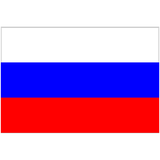
Egypt's Mo Salah carries heavy mantle at World Cup
ST. PETERSBURG, Russia (AP) -- Amid price hikes and growing discontent with the government back home, fans of Egypt's national team are counting on Mohamed Salah to ease their pain both on the field and off.
Salah, a 26-year-old Liverpool striker who was the player of the year in the Premier League, was forced to sit out Egypt's opening match at the World Cup -- a 1-0 loss to Uruguay -- because of injury. But he has been participating fully in practice and seems likely to start against Russia on Tuesday.
Rarely has a soccer player -- or any athlete, for that matter -- carried a savior's mantle so heavy.
Thousands of miles away in Egypt, the government has ordered steep fuel price hikes during a Muslim holiday and will also be looking to Salah to deliver a victory that will make people forget about protesting in the streets.
A win or a draw against Russia, which won its opening match, will keep Egypt's hopes alive ahead of its final group game against Saudi Arabia on June 25.
The Egyptian soccer federation has provided little information about Salah's condition, saying only that he trained fully with the team in Grozny on Saturday and Sunday.
It won't be the first time that Salah, who scored 44 goals in all competitions in his debut season with Liverpool, is called upon to save the day. He almost single-handedly led Egypt to the World Cup for the first time in 28 years. He scored five of the team's eight qualifying goals, including an injury-time penalty against Republic of Congo that ensured qualification with a game in hand.
But to Egyptians, Salah has been much more than just a gifted forward with a knack for scoring goals.
Hailing from a remote Nile delta village, he has been a role model in his native country through his humbleness, generosity and his generally calm disposition. His injury in last month's Champions League final against Real Madrid left Egyptians, soccer fans or not, heartbroken. His exit from the match in pain and crying has touched millions.
Admirably, Salah's nice-guy image takes nothing away from his touch in front of goal.
"I want to be a top-level player for many more seasons to come," said Salah, who was the Premier League's top scorer last season.
"I need to do that so I can be counted among the game's greats," he said in a recent television interview with an Egyptian TV channel. "This is who I am. I like to be better than anyone else. It's all about taking on challenges."
The ocean of love for Salah in Egypt is in sharp contrast to the growing resentment of a government that has pushed on with economic reforms it describes as long overdue and needed to revive the economy, but which have devastated the middle class and the poor. Seeking to ease the pain, the government has offered the poor negligible financial aid along with often repeated expressions of gratitude by Abdel-Fattah el-Sissi, the general-turned-president behind the reforms.
Effective Saturday, fuel prices were up by nearly 50 percent in the third such hike since late 2015. The higher prices are virtually certain to send prices of a wide range of goods and services soaring further. They came just weeks after authorities raised charges for drinking water by up to 45 percent, electricity by 26 percent and fares on the Cairo metro by up to 250 percent.
The latest fuel price hikes had been widely expected, but announcing them during the World Cup and the major holiday of Eid Al-Fitr appears to be designed to ensure there would be no street protests.
The holiday marks the end of Ramadan, the month when Muslims refrain from eating and drinking from dawn-to-dusk -- a particularly grueling ritual this year given that it fell during the summer. They were preceded by a wave of arrests of political activists and social media heavyweights who could have whipped up opposition to the increases.
Already, the price hikes have had an immediate impact on soccer fans, most of whom watch World Cup matches at cafes because they cannot afford cable television. On Sunday, cafe owners announced increases in the minimum charge they collect from patrons during matches.
Political analyst Said Sadek said the timing of the announcement on fuel price hikes was carefully "chosen" and showed the government to be using more savvy tactics to push through tough decisions and avoid unwanted repercussions, but he warned the effect would not last long.
"Soon people will pay their bills, but it's not easy for protests to erupt over the hikes," Sadek said. "They may happen on a small and ineffective scale in some areas but they won't be large. But the general sense of injustice will disseminate among people."
------
Associated Press writer Menna Zaki in Cairo contributed to this report.
------
More AP World Cup coverage: www.apnews.com/tag/WorldCup
